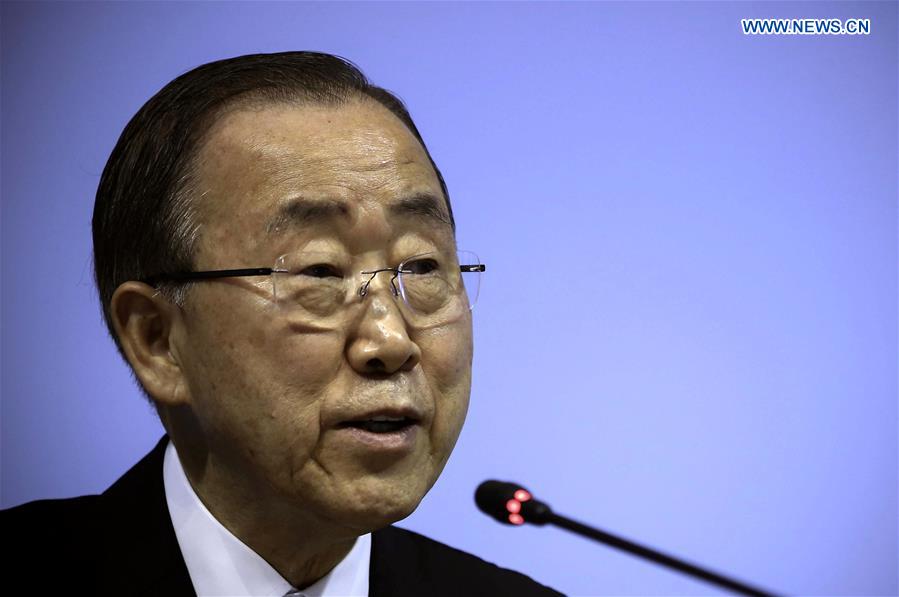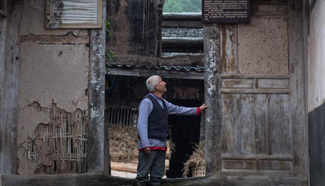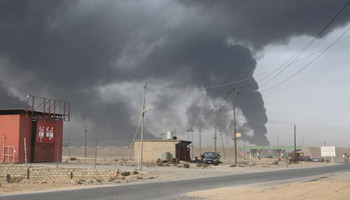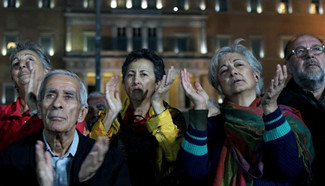
UN Secretary-General Ban Ki-moon delivers a speech during the opening ceremony of the 3rd United Nations Conference on Housing and Sustainable Urban Development, or Habitat III, in Quito, capital of Ecuador, Oct. 17, 2016. The United Nations Conference on Housing and Sustainable Urban Development, held in Quito from Oct. 17 to 20, will set global standards of achievement in sustainable urban development for the next 20 years. (Xinhua/Santiago Armas)
QUITO, Oct. 15 (Xinhua) -- The United Nations Conference on Housing and Sustainable Urban Development, to be held in Quito on Oct. 17-20, will set global standards of achievement in sustainable urban development for the next 20 years.
The meeting, also known as Habitat III, will attract 45,000 participants from around the world, including UN Secretary-General Ban Ki-moon, according to Ecuador's Minister of Security Cesar Navas.
Habitat III is expected to see the signing of the Quito Declaration on Sustainable Cities and Human Settlements for All, and the adoption of a new Urban Agenda.
"The Conference is a unique opportunity for ... governments ... to integrate all facets of sustainable development to promote equity, welfare and shared prosperity," said Dr. Joan Clos, the executive director of the United Nations Human Settlements Program (UN-Habitat).
DECADES OF MOVEMENTS FOR BETTER URBAN LIFE
The migration from rural to urban areas after World War II rapidly accelerated through the 1960s and 1970s. Inequality between countryside and cities made millions across the world flock into cities in pursuit of economic opportunities, leading to the expansion of slums and other illegal settlements in the periphery of major communities, as well as increasing crimes, diseases and chaos.
However, many nations' responses to such chaos were uncoordinated and scattered, which is why the United Nations decided to launch a common dialogue concerning urbanization.
The first UN Conference on Human Settlements, known as Habitat I, was held in Vancouver, Canada in 1976. Its declaration enshrined the concept that "adequate shelter and services are a basic human right." It also led to the creation in 1978 of UN-Habitat, the UN's department for human settlements and sustainable urban development.
In 1996, Habitat II took place in Turkey's Istanbul in a far more inclusive manner. National and local governments, NGOs, academic institutions and private companies were all invited to provide their opinions on how to manage urbanization.
Important topics were discussed, such as women being excluded from urban development and the population trapped in poverty due to their living conditions.
This summit also came up with the concept of sustainable human settlements and the Habitat Agenda has since then become a global call for action.
In December 2014, the UN General Assembly decided to host Habitat III in Ecuador in October 2016. The decision was made as global urbanization witnessed rapid acceleration in the last 40 years.
In 1976, 37.9 percent of the world's population lived in urban regions. The number rose to 45.1 percent by 1996 and now stands at 54.5 percent.
As part of the Post-2015 Development Agenda, which seeks to promote the Millennium Development Goals (2000-2015), the Quito summit aims to become a lynchpin of future urban development planning.
KEY TO FUTURE URBAN PLANNING
Ahead of Habitat III, numerous countries submitted national or regional reports on their urbanization processes, which were compiled into a global report.
Nowadays, fresh challenges of urban development like growing anger over inequality, and big data solutions, communications technology and the popularity of smart phones even in the poorest parts of the world, have arisen.
Under such circumstances, Habitat III has been highlighted for its pivotal role in meeting the new Sustainable Development Goals, so as to "make cities and human settlements inclusive, safe, resilient and sustainable", according to the conference's official website.
From dozens of discussions, roundtables and panels in the coming days, Habitat III attendees are expected to gather and share relevant information, and present a fresh vision for the future of urban development: the New Urban Agenda, whose content was hashed out at previous UN meetings.
The agenda says cities shall remain manageable in size, public transport is a top priority, and urban development is crucial in eradicating discrimination and ensuring universal access to services regardless of people's economic status. Urban residents are also viewed as essential agents of change.
However, some common frustrations remain.
Although countries have vowed to report regularly their urbanization progress, their moves are voluntary, igniting fears that the New Urban Agenda may be unbinding.
UN-Habitat hopes that the increasing responsibility given to local governments will serve to ensure progress. After all, it is local governments that have to pay for the price of urban pollution, traffic congestion, city sprawl and illegal access to public services, to name just a few.











